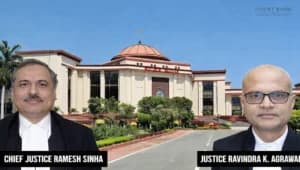Standing in the crowded press corridor outside the Supreme Court on Friday morning, one could sense that something quietly significant had unfolded. Without much noise, the Court released a comprehensive Handbook for Law Clerks-cum-Research Associates, a document that-going by its tone-signals a cultural reset inside the country’s highest judicial office.
Unlike the usual administrative circulars, this handbook reads like a firm but patient guide for young lawyers entering the intense world of the Supreme Court. Officials familiar with the drafting process told me that the project began under former CJI D.Y. Chandrachud, and was later shaped under the leadership of the current Chief Justice. The final version, approved in 2025, reflects months of feedback from judges, registry officers, and even past clerks.
Read also:- Supreme Court Faces New Twist as Kuki Group Accuses Manipur Police of Sending Edited Audio Clips in Probe Linked to Former CM Biren Singh
Inside the document, the Supreme Court adopts a conversational, almost mentor-like approach-something rare in institutional writing. It explains what most first-time clerks never get told: that each judge has their own working rhythm, their own expectations, and in many ways, their own judicial personality. The handbook encourages clerks to adapt quickly and with humility, because, as it reminds them, “every clerk reflects the Judge they serve and the Supreme Court as an institution.”
One of the strongest sections deals with confidentiality, and the language is surprisingly direct. Clerks are warned not to discuss cases with anyone-not even other clerks unless authorised. Social media caution is repeated several times. “Assume every digital communication is public,” the handbook says, almost anticipating the temptations of the Instagram era. Posting anything that hints at internal deliberations or upcoming judgments is strictly prohibited. The duty of secrecy, it notes, continues even after the clerkship ends.
Read also:- Supreme Court Raps Tenant for 5-Year Non-Payment, Restores Eviction Orders in Kochi Shop Dispute: Detailed Analysis of Landmark Ruling
There’s also a full chapter on ethical responsibility, urging clerks to maintain neutrality and avoid even the perception of conflict of interest. A senior court officer I spoke to summed it up simply: “This is the closest thing we’ve had to a moral compass for clerks.”
In a move reflecting the times, the Supreme Court has for the first time framed rules for the ethical use of Artificial Intelligence. The handbook clearly states that AI-generated material must never be trusted blindly and that clerks must verify every citation and quote through official sources. Any attempt to pass off AI-produced text without proper verification may be treated as misconduct. “A clerk cannot outsource judgment,” it cautions.
Another striking feature is its strong emphasis on a safe and inclusive workplace, covering sexual harassment, caste-based discrimination, and conduct expectations regardless of seniority. It points clerks to the GSICC mechanism and spells out what behaviours constitute harassment-sometimes listing everyday scenarios that young lawyers might otherwise overlook.
Read also:- Supreme Court Steps In After Years of Neglect, Orders Urgent Action to Save Jojari–Bandi–Luni
The handbook doesn’t shy away from the technical side of chamber work either. There are detailed notes on how to prepare case briefs, the difference between “agreed facts” and “disputed facts,” and the importance of cross-checking party-drafted submissions with judicial records. It even explains how Special Leave Petition (SLP) files move from listing to judgment, complete with an illustrated flowchart.
By the time one finishes reading, it feels clear that the Court intends to professionalize the clerkship experience and set expectations early. As one registry official put it, “We want clarity. When a clerk enters a judge’s office now, the rules of the game won’t be a mystery.”
Read also:- New Supreme Court Report Exposes Deep Contradictions in Judicial Thinking on Caste, Merit
The Supreme Court has officially issued the handbook and instructed that its norms apply immediately to all current and incoming law clerks.
Title: An Administrative Handbook













